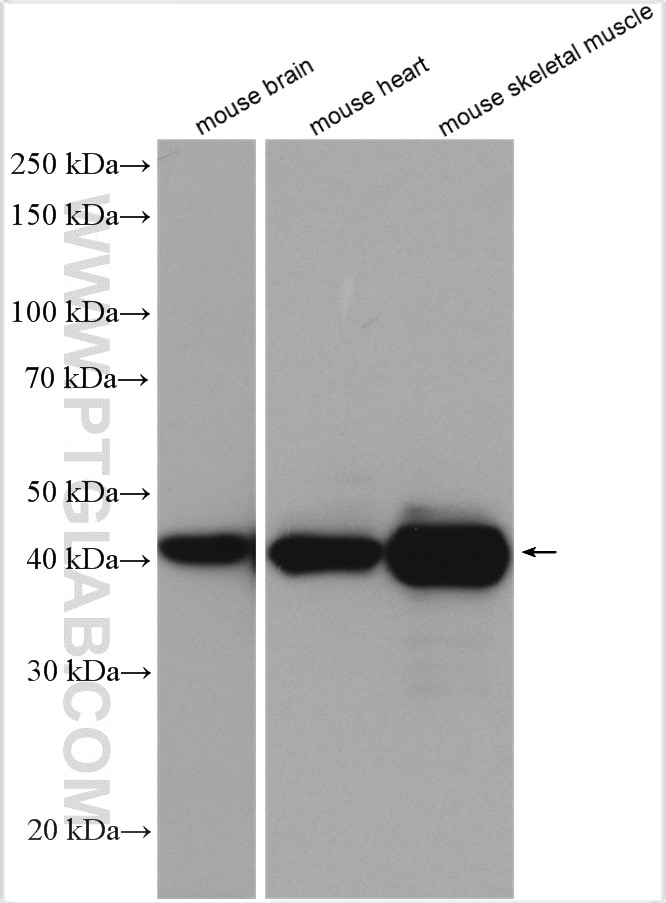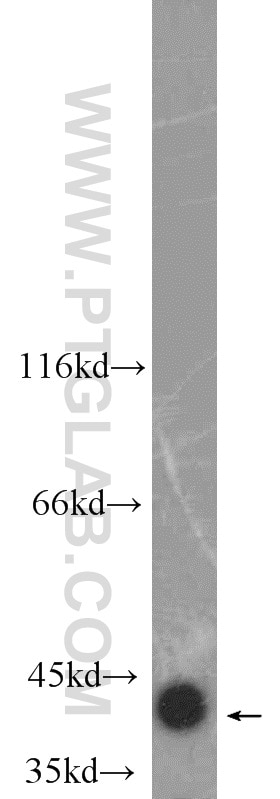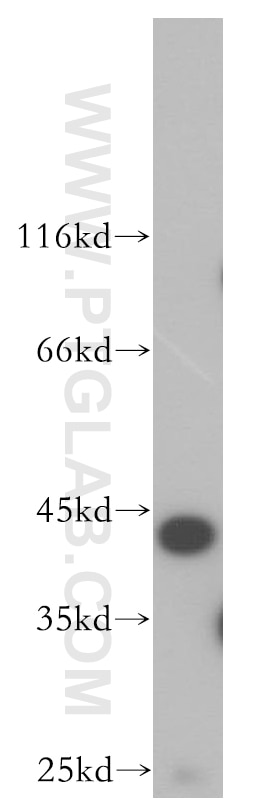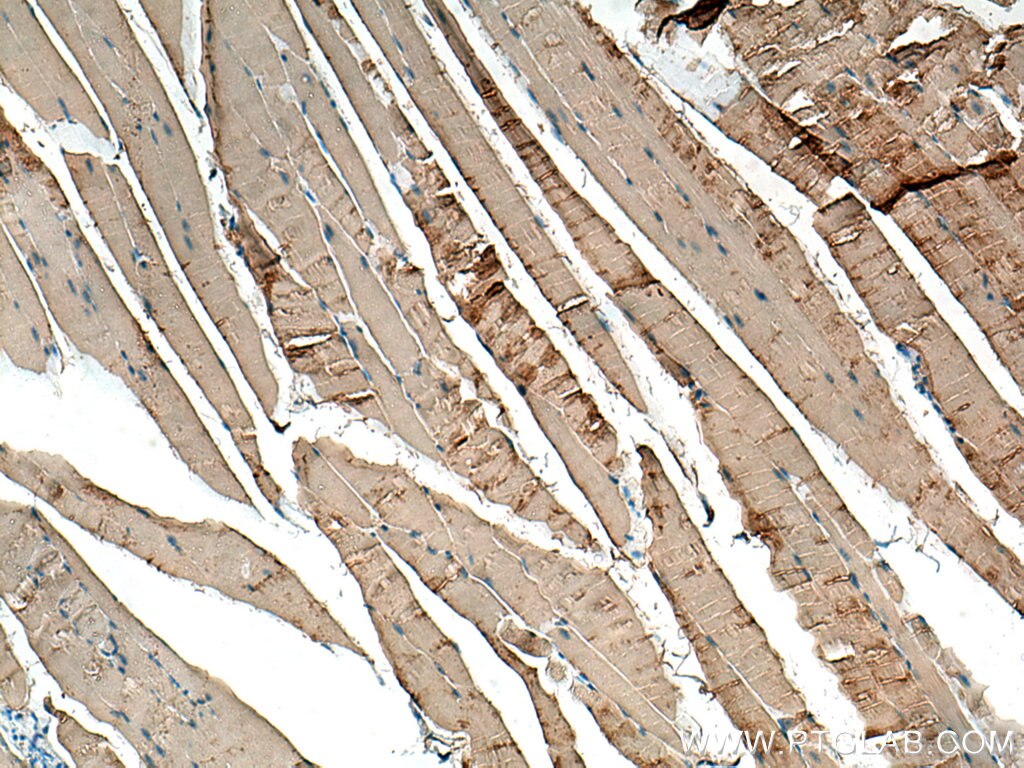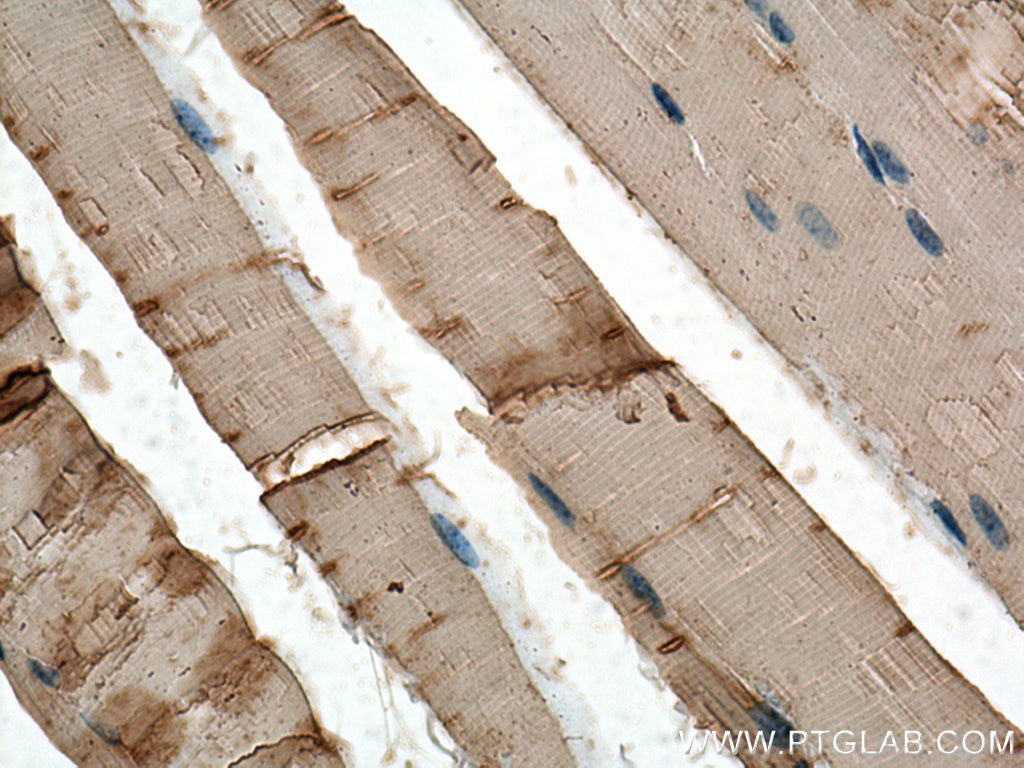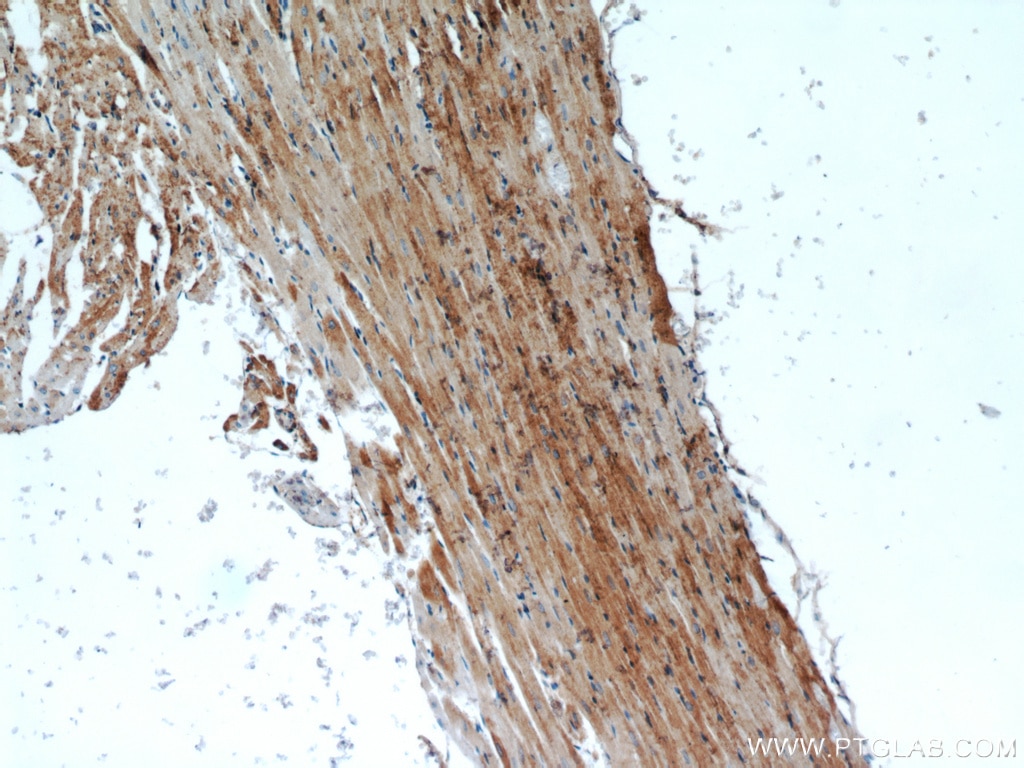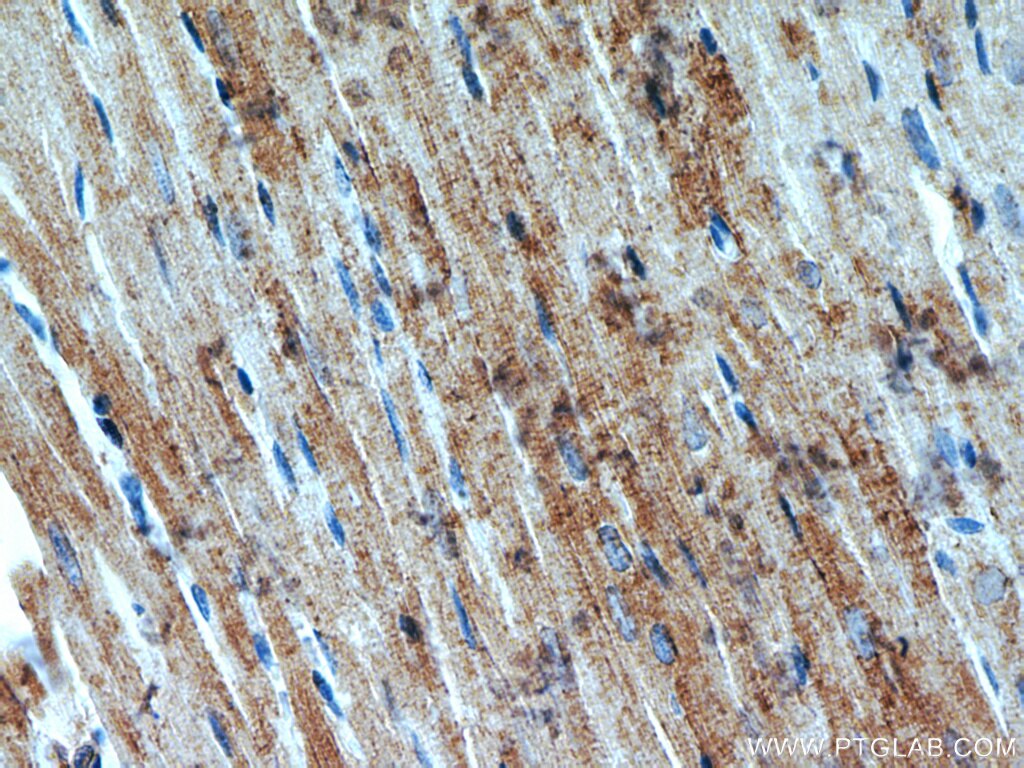CKM-Specific Polyklonaler Antikörper
CKM-Specific Polyklonal Antikörper für WB, IHC, ELISA
Wirt / Isotyp
Kaninchen / IgG
Getestete Reaktivität
human, Maus, Ratte und mehr (1)
Anwendung
WB, IHC, IF, ELISA
Konjugation
Unkonjugiert
Kat-Nr. : 18712-1-AP
Synonyme
Geprüfte Anwendungen
| Erfolgreiche Detektion in WB | Maushirngewebe, Mausherzgewebe, Maus-Dünndarmgewebe |
| Erfolgreiche Detektion in IHC | Maus-Skelettmuskelgewebe, Rattenherzgewebe Hinweis: Antigendemaskierung mit TE-Puffer pH 9,0 empfohlen. (*) Wahlweise kann die Antigendemaskierung auch mit Citratpuffer pH 6,0 erfolgen. |
Empfohlene Verdünnung
| Anwendung | Verdünnung |
|---|---|
| Western Blot (WB) | WB : 1:5000-1:50000 |
| Immunhistochemie (IHC) | IHC : 1:50-1:500 |
| It is recommended that this reagent should be titrated in each testing system to obtain optimal results. | |
| Sample-dependent, check data in validation data gallery | |
Veröffentlichte Anwendungen
| WB | See 6 publications below |
| IF | See 1 publications below |
Produktinformation
18712-1-AP bindet in WB, IHC, IF, ELISA CKM-Specific und zeigt Reaktivität mit human, Maus, Ratten
| Getestete Reaktivität | human, Maus, Ratte |
| In Publikationen genannte Reaktivität | Maus, Ratte, Bakterium |
| Wirt / Isotyp | Kaninchen / IgG |
| Klonalität | Polyklonal |
| Typ | Antikörper |
| Immunogen | Peptid |
| Vollständiger Name | creatine kinase, muscle |
| Berechnetes Molekulargewicht | 43 kDa |
| Beobachtetes Molekulargewicht | 43 kDa |
| GenBank-Zugangsnummer | BC007462 |
| Gene symbol | CKM |
| Gene ID (NCBI) | 1158 |
| Konjugation | Unkonjugiert |
| Form | Liquid |
| Reinigungsmethode | Antigen-Affinitätsreinigung |
| Lagerungspuffer | PBS with 0.02% sodium azide and 50% glycerol |
| Lagerungsbedingungen | Bei -20°C lagern. Nach dem Versand ein Jahr lang stabil Aliquotieren ist bei -20oC Lagerung nicht notwendig. 20ul Größen enthalten 0,1% BSA. |
Hintergrundinformationen
CKM, also named CKMM and M-CK, is a member of the ATP:guanido phosphotransferase protein family. It is a cytoplasmic enzyme involved in energy homeostasis and is an important serum marker for myocardial infarction. CKM reversibly catalyzes the transfer of phosphate between ATP and various phosphogens such as creatine phosphate. It acts as a homodimer in striated muscle as well as in other tissues, and as a heterodimer with a similar brain isozyme in the heart. CK isoenzymes play a central role in energy transduction in tissues with large, fluctuating energy demands, such as skeletal muscle, heart, brain, and spermatozoa. CK MB consists of a dimer of nonidentical chains. With MM being the major form in skeletal muscle and myocardium, MB exists in the myocardium, and BB exists in many tissues, especially the brain. Inactivation of creatine kinase by gliotoxin was accompanied by the formation of a 37-kDa form of the enzyme. This oxidized form of creatine kinase was rapidly reconverted to the 42 kDa species by the addition of reducing agents concomitant with restoration of activity. (PMID: 10827185). This antibody is specific to CKM.
Protokolle
| PRODUKTSPEZIFISCHE PROTOKOLLE | |
|---|---|
| WB protocol for CKM-Specific antibody 18712-1-AP | Protokoll herunterladen |
| IHC protocol for CKM-Specific antibody 18712-1-AP | Protokoll herunterladenl |
| STANDARD-PROTOKOLLE | |
|---|---|
| Klicken Sie hier, um unsere Standardprotokolle anzuzeigen |
Publikationen
| Species | Application | Title |
|---|---|---|
Cell Prolif KLF3 promotes the 8-cell-like transcriptional state in pluripotent stem cells. | ||
Mol Pharmacol Naturally Occurring Mutations to Muscle-Type Creatine Kinase Impact Its Canonical and Pharmacological Activities in a Substrate-Dependent Manner In Vitro. | ||
Phytomedicine Ligustilide covalently binds to Cys254 of the creatine kinase, M-type protein, ameliorating acute myocardial ischemia by enhancing the creatine phosphate level |
